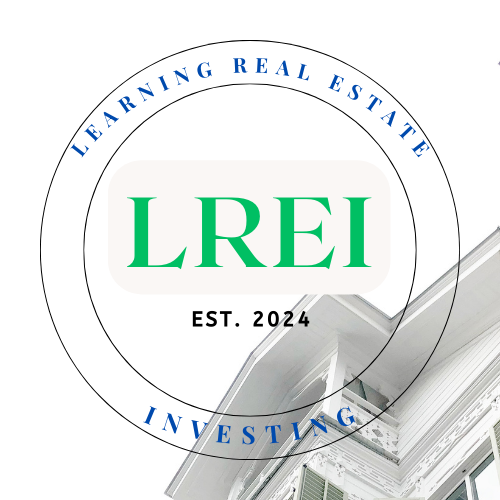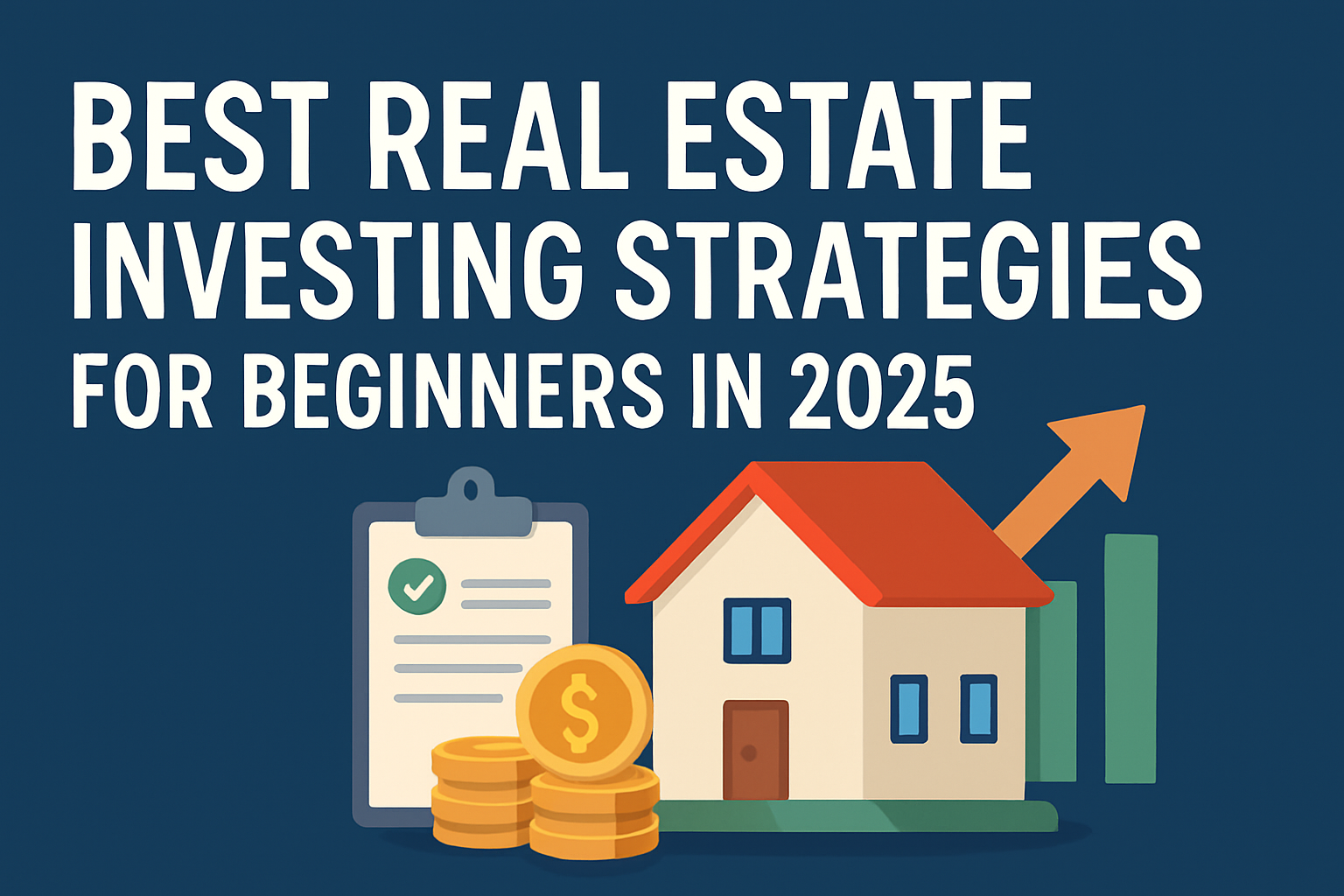Real estate investing is one of the most reliable ways to build wealth, but if you’re just starting out, it can feel overwhelming. With changing markets, new technology, and evolving trends, beginners need a clear, simple roadmap to get started.
In 2025, real estate remains a solid investment, but the strategies have adapted to modern trends like remote work, AI-powered property analysis, and sustainability demands. Whether you want passive income, long-term appreciation, or quick flips, there’s a strategy that fits your goals.
Here are the best real estate investing strategies for beginners in 2025, explained in a way that’s easy to understand and apply.
1. House Hacking (Live for Free While Building Equity)
What It Is:
House hacking means buying a multi-unit property (like a duplex, triplex, or fourplex), living in one unit, and renting out the others. The rent from tenants covers your mortgage, allowing you to live for free (or even profit).
Why It’s Great for Beginners in 2025:
Low Barrier to Entry: FHA loans allow down payments as low as 3.5%.
Remote Work Flexibility: More people work from home, so living in smaller units is more acceptable.
AI Tools Help: Apps like Zillow, Rentometer, and AI-powered property managers make screening tenants and setting rents easier.
How to Start:
Look for 2-4 unit properties in growing neighborhoods.
Use an FHA loan if you need a low down payment.
Rent out the other units at market rates to cover costs.
Pro Tip: Even if you don’t want roommates, you can house hack by renting out spare bedrooms in a single-family home.
2. Rental Properties (Long-Term Cash Flow)
What It Is:
Buying a property (single-family home, condo, or small apartment) and renting it out for steady monthly income.
Why It’s Great for Beginners in 2025:
High Demand for Rentals: With rising home prices, more people are renting long-term.
AI & Automation: Tools like TurboTenant and Avail handle leases, rent collection, and maintenance requests.
Remote Property Management: You don’t need to live near your rental—hire a local property manager if needed.
How to Start:
Buy a property in a landlord-friendly state (low taxes, easy eviction laws).
Calculate cash flow (rent should cover mortgage + expenses + profit).
Use online platforms to find tenants and manage the property.
Pro Tip: Look for “rent-by-the-room” strategies in college towns or cities with high demand for affordable housing.
3. Short-Term Rentals (Airbnb & VRBO)
What It Is:
Renting out a property (or a room) on Airbnb, VRBO, or Furnished Finder for short stays.
Why It’s Great for Beginners in 2025:
Tourism is Back: Post-pandemic travel is booming, especially in unique destinations.
AI Pricing Tools: Dynamic pricing apps like PriceLabs and AirDNA adjust rates automatically for max profit.
Flexibility: You can rent out a spare room, a vacation home, or even a “tiny home.”
How to Start:
Research high-demand areas (near attractions, business hubs, or events).
Check local STR (short-term rental) laws—some cities restrict them.
Optimize listings with professional photos and smart pricing tools.
Pro Tip: Consider “mid-term rentals” (30+ days) for traveling nurses or remote workers—less turnover than Airbnb.
4. Real Estate Crowdfunding (Invest Without Buying a Whole Property)
What It Is:
Pooling money with other investors to buy properties through online platforms (like Fundrise, CrowdStreet, or RealtyMogul).
Why It’s Great for Beginners in 2025:
Low Minimum Investment: Some platforms start at $500.
Diversification: Invest in multiple properties without the hassle of management.
Passive Income: Earn rental profits or appreciation without dealing with tenants.
How to Start:
Choose a platform (REITs for steady dividends, crowdfunding for higher returns).
Invest in a diversified portfolio (residential, commercial, or industrial).
Reinvest earnings to compound wealth.
Pro Tip: Some platforms offer tax advantages, like Fundrise’s eREITs.
5. Wholesaling (Fast Profits Without Owning Property)
What It Is:
Finding deeply discounted properties, getting them under contract, and selling the contract to another investor for a fee.
Why It’s Great for Beginners in 2025:
No Credit or Down Payment Needed: You don’t buy the property—just assign the contract.
AI & Automation: Tools like PropStream and BatchLeads help find off-market deals fast.
High Demand for Fixer-Uppers: Investors always need discounted properties.
How to Start:
Find motivated sellers (distressed homes, probate, or absentee owners).
Negotiate a low price and sign a contract.
Sell the contract to a cash buyer for a $5K-$20K fee.
Pro Tip: Build a buyers list (local investors who buy wholesale deals) before starting.
6. Fix-and-Flip (Buy, Renovate, Sell for Profit)
What It Is:
Buying a distressed property, renovating it, and selling it quickly for a profit.
Why It’s Great for Beginners in 2025:
AI Design Tools: Apps like Houzz and MagicPlan help estimate renovation costs.
High Demand for Move-In Ready Homes: Buyers pay premiums for updated homes.
Hard Money Lenders: Specialized loans fund flips (but higher interest rates).
How to Start:
Find undervalued homes (foreclosures, auctions, or tired landlords).
Calculate ARV (After Repair Value) and renovation costs.
Sell fast (avoid holding costs).
Pro Tip: Partner with an experienced flipper or contractor to reduce risk.
7. BRRRR Strategy (Buy, Rehab, Rent, Refinance, Repeat)
What It Is:
A long-term wealth-building strategy where you buy a fixer-upper, renovate it, rent it out, refinance to pull cash out, and repeat.
Why It’s Great for Beginners in 2025:
Recycle Your Capital: Refinancing lets you reuse your initial investment.
AI Valuation Tools: Accurate refinance estimates with platforms like RentRedi.
Scalable: Keep growing your portfolio without new cash.
How to Start:
Buy a distressed property below market value.
Renovate to increase value.
Rent it out, then refinance to get your money back.
Repeat with the next property.
Pro Tip: Focus on neighborhoods with rising rents and property values.
Final Tips for Beginner Real Estate Investors in 2025
Start Small – Don’t over-leverage; one good deal is better than three risky ones.
Use Technology – AI, automation, and online platforms make investing easier than ever.
Network – Join local real estate groups, find mentors, and learn from others.
Stay Educated – Markets change; keep up with trends (like green homes or co-living spaces).
Take Action – The best strategy is the one you actually start.
Bottom Line:
Real estate investing in 2025 is more accessible than ever, thanks to technology and creative strategies. Whether you want passive income (rentals, crowdfunding), quick profits (wholesaling, flipping), or long-term wealth (BRRRR, house hacking), there’s a perfect fit for you.
Which strategy will you try first? 🚀 Click here for free ebook.


Leave a Reply